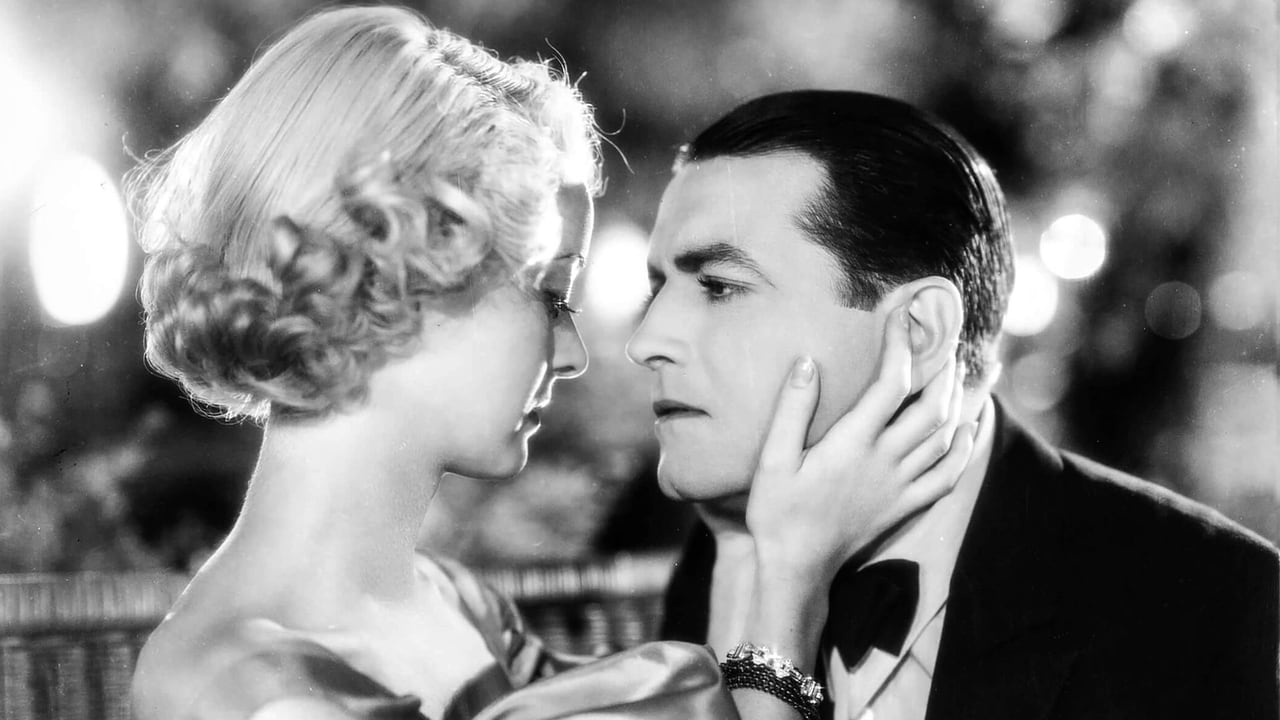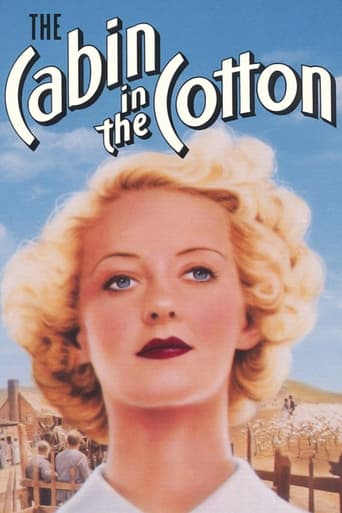

Lack of good storyline.
... View MoreFrom my favorite movies..
... View MoreAwesome Movie
... View MoreOk... Let's be honest. It cannot be the best movie but is quite enjoyable. The movie has the potential to develop a great plot for future movies
... View MoreCotton-picking farm boy Richard Barthelmess (as Marvin Blake) is saddened by the sudden death of his father, who was conflicted by young Barthelmess' growing fondness for higher education. In order to support his poor family, Barthelmess goes to work for the sharecroppers' miserly plantation owner, Berton Churchill (as Lane Norwood), who also pays for his schooling. Alas, an educated Barthelmess causes political trouble for his fatherly employer.Barthelmess is really too old to be playing a school-age kid. The costume, lighting, and make-up do not hide the strain. Fortunately, Barthelmess, a fine actor, would follow this with some more suitable roles, like "Heroes for Sale" (1933). "The Cabin in the Cotton" has good direction (by Michael Curtiz), an interesting story, and a finely-wizened supporting cast. Barthelmess' leading ladies are sweet Dorothy Jordan (as Betty Wright) and sassy Bette Davis (as Madge Norwood). Ms. Davis, who delivers the memorable line, "I'd like to kiss ya, but I just washed my hair," is outstanding.***** The Cabin in the Cotton (10/15/32) Michael Curtiz ~ Richard Barthelmess, Bette Davis, Dorothy Jordan, Berton Churchill
... View More"Cabin in the Cotton," made in 1932, is famous for a blond, 23-year-old Bette Davis saying, "Ah'd love to kiss ya, but ah just washed mah hairah," a completely meaningless line that she made fun of in the '70s when she was touring with John Springer.She's very pretty here, and plays the haughty daughter of a planter who's after Richard Barthelmess.The film is a serious one, made during the depression, about the plight of sharecroppers who are exploited by planters. It's actually a compelling story. Unfortunately, I have never been a fan of Richard Barthelmess in sound films, so there for me, it falls short.Worth seeing, and if you're a Davis fan, don't miss this.
... View MoreThe lead (37 when the movie was made) is obviously too old for the part.He is gauche,clumsy,nothing of a working class hero.He's supposed to be clever and educated but we do not feel it.Fortunately the supporting cast is up to scratch ,with a superb Bette Davis at her bitchiest.It's a wonder she can be seduced by such an oaf.Marvin is a smart young man who knows that the way to get out of poverty in the cotton fields is education.Note that his dad passes away as he is reading an article in a newspaper which advocates the right of peoples to education ,be they rich or poor ..During all the movie,Marvin will be caught in the crossfire: his boss,a land owner(Madge's (Davis) father),after laughing when Marvin's father tells him his sonny wants to study quickly understands the whiz kid could be a marvelous informer.When the young man becomes a gentleman ,the tenants feel they are betrayed by one of them..Curtiz superbly places side by side the two worlds during Betty's and Madge's parties.Marvin is ill-at-ease in both.In Betty's house ,he has become out of place in his Sunday's best.In Madge's desirable mansion,during the ball with a jazz band (that costs a arm and a leg,as Marvin tells to his brothers in his final speech), those vulgar popular dances are held up to ridicule by the wealthy man's daughter's guests.The conclusion is the reconciliation between capital and labor (the cooperation) a la "Metropolis" where Marvin is the arbitrator.Curtiz never forgot to tell a story and this old film,despite the reservation expressed about the male lead,can still grab today's audience.Anyway,the numerous Davis' fans would not like to miss one of her early films.
... View MoreWith all the emphasis on Bette Davis in this film, it is easy to overlook the musical interest. I counted four different musical groups, each assigned to a different "class". There was the marching band at the funeral (black used at a poor white event), the jug band (white, at the poor white party), the jazz band (black, at the rich white party), and the blues singer. This is a surprisingly rich array of styles.Interestingly, only the blues singer (Clarence Muse) is credited.
... View More